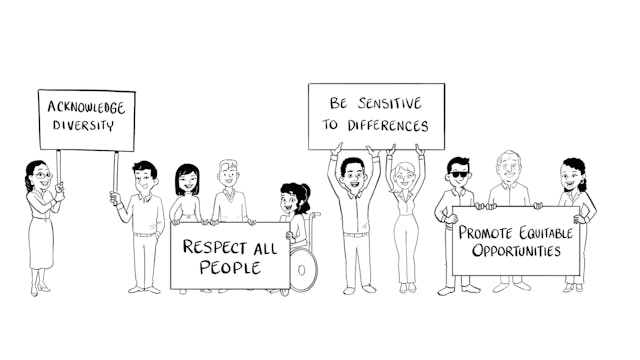Communicating Effectively with People with Intellectual Disabilities
Inclusive Language & Communication
•
2m 58s
Benefit from these helpful best practices for communicating and collaborating effectively with people with intellectual disabilities. Learn how to adapt your communication style to fit the needs of your colleagues.
Up Next in Inclusive Language & Communication
-
Rules of Inclusive Language
Being a welcoming and inclusive organization means consciously working to find ways to name, honor, and value experiences and identities. Increasing the inclusivity of our language addresses the way that language often unconsciously makes assumptions about people. Here are a few rules to follow t...
-
How Should I Refer to People Who Have...
When referring to a person with intellectual difficulties, it’s important to choose your words carefully. Keep the conversation centered around their individuality, as opposed to their condition. Here are some tips for using inclusive, supportive language.
-
Is it Okay to Ask Someone if They Hav...
Understand why it’s overly personal and inappropriate to ask someone about their medical conditions, including whether they have Autism Spectrum Disorder, or ASD. Medical and psychological conditions are deeply personal topics that many people don’t feel comfortable discussing.



